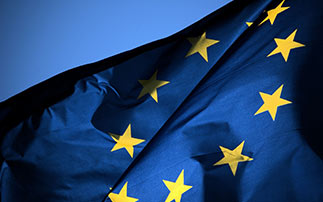For a project leader, obtaining European funding can be very complex. Whether it is for a European Commission programme or a structural fund, there are many rules to follow and many pitfalls to avoid. Entrusting the design of the grant application, and more broadly the management of the project, to a consultancy firm can improve the chances of obtaining funding. In order to understand why using this service offers real added value to a project, it is necessary to look at what a consultant is and what role they can play.
What is a consultant?
A consultant is, above all, a specialist in European funds. He has an overall knowledge of the functioning of the institutions (European Commission, European Parliament, etc.) and of the major strategic orientations of the policies conducted by the European Union. Beyond the generic knowledge of the institutions and their functioning, he is an expert who knows the ecosystem of the European funds and knows how to find his way in the European but also national and regional institutional organisation. He knows which person to contact depending on the situation, has contacts and is in touch with the various management bodies.
A consultant is also a specialist in one or few types of funds. He follows the fund’s developments, news and priorities and will be able to guide the project through to grant award and project launch and conclusion. He also has experience that provides empirical knowledge of the field on which to base the best advice.
Each member of the consultant team is thus a specialist in one or more funds, which necessarily implies knowledge of European rules and regulations (advertising, tendering, etc.). At the end of an audit, they guarantee that the project complies with European obligations.
By considering all aspects of the consulting profession, he is therefore an intermediary and a privileged partner who will be able to advise you in the best possible way according to your particularities and your project.
What is the role of a consultant?
The consultant has three main types of skills:
- Expertise in European funding and European institutions
- Assistance in setting up and managing the project in close collaboration with the various stakeholders
- An intelligent organisation, necessary for the good performance of the project and allowing to secure the grant application
Expertise on European funds and the European Union
As an expert, the consultant can lead training sessions. Welcomeurope offers a training service on structural funds or, at the request of the project leader, a tailor-made training programme can be created. These training sessions allow project leaders to acquire the essential knowledge to properly apply for a grant and a project, on European funds, but also on regulations. In a more practical way, these trainings are an opportunity to discover the different stages of a grant application, the organisation of a project and the management tools necessary for its successful completion.
The consultant’s expertise also lies in the choice of a fund. In order to be as relevant as possible, the fund must be chosen according to the different characteristics of the project, but also of the project leader or its possible partners. The context of the policies carried out by the European Union should also be taken into account, a context which the consultants follow in the light of developments.
In addition to knowledge of the overall context of policies conducted at European level, the consultant has knowledge of other projects in different fields and can therefore draw on his own experience in the field to find out what works and thus guide the project leader as effectively as possible. The consultant’s help is therefore very valuable for strategic decisions.
Assistance in applying for a grant
The consultant’s role is also to help prepare and, above all, secure a grant application. Their knowledge is a real asset in maximising the chances of obtaining a grant.
More practically, the consultant knows how to handle the different filing platforms and also knows the mistakes that are often made and the good practices to adopt. Because some platforms are complicated to handle, it can be a non-negligible asset and a precious time-saver. The consultant, and more broadly the firm to which he belongs, also lists a number of contacts with the institutions or management authorities that it may be necessary to mobilise in the event of questions or problems. Being used to dialogue with these actors, the consultant will be able to ask the right questions and provide the project leader with useful and relevant information. With his experience in European funds, the consultant will be able to target the important elements in a grant application that can make the difference during the appraisal phase and thus secure the application. For sometimes competitive calls for projects, the assistance of a consultant can make the difference between the project and other projects and reduce the risk of the application being rejected.
Finally, if the request is accepted, the assistance provided by the consultancy may extend to project management. In a field where the regulations and European rules to be respected (competition, advertising, etc.) are numerous and sometimes restrictive, the consultant will provide his knowledge and advice in order to anticipate the errors not to be made and, in the event of an audit, to be able to provide all the documents requested. For this, rigorous organisation is a necessity.
The consultant is also an organiser
To successfully complete a grant application and, more broadly, a project, rigorous and efficient organisation is necessary. It is these skills that the consultant can provide. Drawing on its many years of experience, the consultant has developed an organisation and collaborative tools that will enable the project to run smoothly. To help coordinate the contributions of the partners or players, the consultant can design management tools (planning, shared documents, etc.).
This logic of coordination and organisation of information makes it possible to prevent the dispersion of information and thus to improve the efficiency of the work. This organisation can support the internal organisation of the organisation and be complementary. In addition, the consultant has an overall view of the project and can help steer both the project and the partnership, if there is one, in the case of a collaborative project.
Finally, rigorous organisation enables the project to act in anticipation of a possible control, frequently carried out by European, national or regional authorities. In the event of an inspection, the consultant ensures that all the necessary documents are properly filed and can assist the project leader.
Thus, working with a consultant makes it possible to put all the chances on one’s side to obtain the grant by securing the procedures as much as possible, to benefit from expert advice based on extensive experience of European funds, but also to learn how to manage the project well in view of the controls carried out downstream of the project and thus avoid sanctions.


